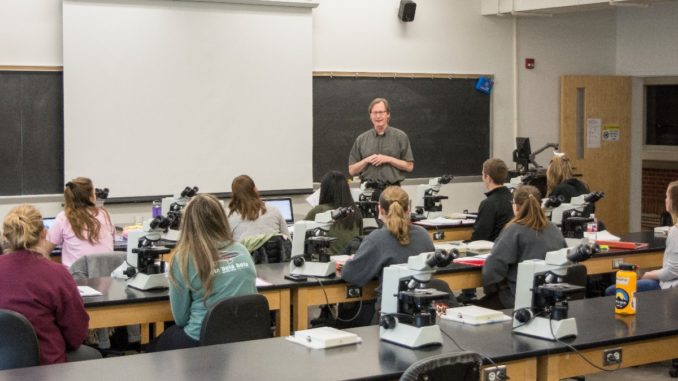
Truman State University announced expansions to employee leave options related to COVID-19, as well as information for working remotely.
University President Sue Thomas sent a campuswide email addressing several changes in an attempt to combat the spread of coronavirus. The University policies have been updated to support employees impacted by school and daycare closures related to coronavirus.
Employees may use up to 30 days of sick leave to take care of immediate family members. Vacation leave can also be used, with 15 days available for use before they are earned. The borrowed days will be deducted from future earned vacation leave.
If an employee becomes sick and is unable to work through telecommuting, the employee can use paid sick leave if available. Employees can also borrow up to 15 days vacation leave from future accrual.
If a healthy employee is instructed to quarantine for safety reasons and telecommuting is not an option, paid administrative leave might be granted. Up to 15 days can be granted, with documentation needed as necessary.
Telecommuting procedures have been made available for employees wishing to work from home. The telecommuting request form from Human Resources must be filled out. The form requires a detailed plan of the employee’s daily schedule and assignments. An employee’s supervisor will evaluate work productivity from those telecommuting on a weekly basis.
At a Faculty Senate meeting on Thursday, Thomas said the University has no plans to lay off employees.
“It is our goal not to do furloughs or layoffs,” Thomas said.
Thomas said that the University has several employees who could not possibly work from home. She gave the example of not being able to cut Truman’s grass from home or fixing broken pipes from home.
“A lot of times, the people who cannot work remotely are indeed the people who are some of our lower paid employees on campus,” Thomas said.
Thomas said everyone needs to think about how they can use this time to move the University forward. She said everyone has to learn how to help each other.
The federal government recently passed the Families First Coronavirus Response Act, which will affect Truman’s staff. The act will provide paid sick leave and require employers to produce more supplementary health precautions.
“Information about how the Families First Coronavirus Response Act to begin April 2, 2020 impacts our leave policies will be provided by the end of March,” Thomas said.
Craig Hennigan, assistant professor of communication and assistant director of forensics, said switching to online teaching has been very difficult. He said it is not as challenging for the communication department compared to some other departments.
“The students though have been very accommodating as we fumble through this transition, and I appreciate that,” Hennigan said.
Hennigan said the biggest challenge for him has been doing online lectures because it is difficult due to the lack of reaction from students, as well as lacking the ability to join in on small group conversations with students.
